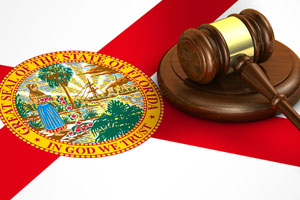A Florida jury found James Clark guilty of causing the death of an 85-year-old woman while driving after drinking. Frank Fore, an accident reconstruction expert, was hired to help Clark’s lawyer overturn the manslaughter DUI conviction.
In support of the lawyer’s challenge to the conviction, Fore prepared an affidavit expressing the expert opinion that Clark was driving at 55 mph at the time of the accident. He based his opinion on his understanding of data that was taken from the accident victim’s vehicle. Prosecutors had contended that the car was traveling at 85 mph.
Fore’s Mistake
Fore thought he was relying on pre-impact data from the victim’s air bag control module. However, the victim’s car was not able to provide that data.
Fore explained that he relied on a flawed tool that appeared to download the data from the victim’s car. He mistakenly believed the data reported by the tool was accurate.
Fore realized that he misunderstood the data when he was provided with a report prepared by the prosecution’s expert. Fore notified Clark’s attorney of the error but he was not asked to, and therefore did not, revise his affidavit. Clark’s attorney failed to notify the prosecutor of the error in Fore’s affidavit.
The prosecutor took Fore’s deposition. During questioning, Fore acknowledged that his affidavit contained erroneous information. The prosecutor then asked the court to impose sanctions on Fore. At a hearing on that request, the judge found that the affidavit was “materially false” and that Fore had been “recklessly indifferent” to the truth.
The court treated the request for sanctions as a motion to hold Fore in contempt of court. In a civil contempt proceeding, the remedy is remedial, not punitive, so the court could not assess a criminal punishment against Fore. The court decided, however, that it had the power to impose a monetary sanction as compensation “for losses sustained.” It ordered Fore to pay $6,667.70 to compensate the state for the cost of ordering transcripts and hiring its own expert witness.
The court also sanctioned Clark’s attorney. The attorney did not appeal. Fore, on the other hand, appealed the award of sanctions.
Civil Contempt Sanctions Against an Expert Witness
Under Florida law, civil contempt can be imposed as a sanction for the intentional violation of a court order. In most cases, contempt sanctions are imposed to coerce compliance with an order. Somebody who is ordered to produce a document might therefore be jailed or made to pay a daily fine until the document is produced.
The Florida Supreme Court long ago recognized the judicial power to impose a “compensatory fine” in civil contempt cases. While that is what the trial court purported to do when it fined Fore, the District Court of Appeal concluded that the trial court had no authority to impose that sanction. The appellate court noted that contempt fines may only be imposed when a court order has been violated. Fore was not ordered to prepare an affidavit and his inclusion of erroneous information, even if reckless, did not violate a court order.
The appellate court also noted that civil contempt sanctions are only available for intentional violations of a court order. The trial court found that Fore was negligent and even reckless when he prepared the affidavit, but it did not find that he intentionally included false information. For that additional reason, no civil contempt sanction could be imposed.
Other Sanctions Against Expert Witness
The prosecution argued that the trial court had inherent authority to sanction the expert, even if the court incorrectly characterized its decision as the imposition of a contempt sanction. The prosecution pointed to a line of Florida cases that allow trial courts to sanction lawyers who act in bad faith. Those sanctions typically involve an order to pay some or all of the other party’s attorney fees.
The appellate court concluded that the doctrine permitting sanctions against lawyers who act in bad faith should not be extended to expert witnesses. The court noted that the threat of sanctions might deter expert witnesses from testifying for fear that they will be punished if they make a mistake. In addition to the chilling effect that the threat of sanctions might have on expert testimony, the court expressed concern that sanctioning an expert witness might violate the expert’s right to freedom of speech, access to the courts, and due process.
Lessons Learned
Experts should always take care to double-check the facts upon which they base opinions. Unfortunately, mistakes happen. Fore did the right thing when he reported the mistake to the defense attorney. To protect himself, however, he probably should have been more aggressive about following through with the attorney, and should have drafted a revised affidavit based on correct information.
Still, the appellate decision sends the message that experts should not be sanctioned if they make unintentional errors. Experts should try not to make mistakes and should correct any mistakes they discover, but they should not be intimidated by the possibility that an opposing lawyer might ask a judge to sanction them if their opinions turn out to be wrong.




